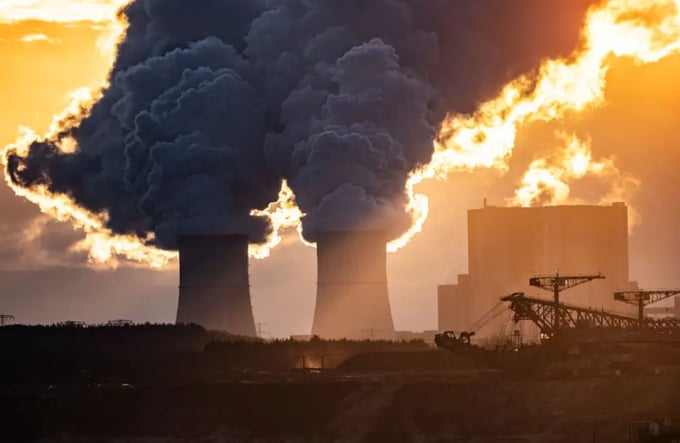November 25, 2025 | 10:58 GMT +7
November 25, 2025 | 10:58 GMT +7
Hotline: 0913.378.918
November 25, 2025 | 10:58 GMT +7
Hotline: 0913.378.918

Germany's carbon-credit program has been marred by scandal this year.
The country's program allows its biggest carbon producers — companies like Shell and other oil firms — to offset some of their emissions by supporting carbon-reduction projects abroad.
However, reports in German media this year show that some projects are misleading in their claims of reducing emissions — and some don't exist at all.
A report in Semafor on Wednesday notes that in one case, a whistleblower informed Shell that a carbon-reduction project the oil giant was involved with was, in fact, a chicken farm.
According to an industry group, the scandal has led to $5 billion in lost income for companies involved in inadequately verified or fraudulent projects.
In December, a report in the German outlet Handelsblatt said that half of projects in China are probably fake or misrepresenting their effectiveness.
The scandal involves Upstream Emission Reduction credits, which are produced by third-party energy firms and sold to producers looking to offset 1.2% of their emissions, as mandated by the German government.
Most UER projects are located in China, with others in Azerbaijan and Nigeria. However, German media identified at least 27 projects that aren't actually reducing any emissions or are exaggerating their results.
"In 27 UER projects from China, we have received indications of massive irregularities and even clear fraud," an industry insider told Handelsblatt in December.
Some revelations about fraudulent projects — like the chicken farm Shell was involved with — come from whistleblowers, while others have surfaced from satellite photos of project locations showing empty land.
Semafor notes that the scandal is highly damaging to the global carbon-reduction effort, which is already operating on little trust in the biggest polluters' ability to self-regulate and actually reduce their carbon footprint.
It is also a blow to regulators who are meant to be policing the effort and overseeing the transition to net-zero. In the case of the fraudulent UERs, compliance with the 1.2% reduction is not voluntary but legally mandated by the government, leading to questions over why agencies did not have more oversight of the program.
(Businessinsider)

(VAN) Brazil's COP30 presidency pushed through a compromise climate deal on Saturday that would boost finance for poor nations coping with global warming but that omitted any mention of the fossil fuels driving it.

(VAN) Poultry farmers in the UK have been warned that they could face one of the worst winters yet for bird flu.

(VAN) Prices of main-crop paddy have risen sharply, with jasmine rice hitting 16,100 baht per tonne — the highest level in years.

(VAN) In Brazil, FAO unveiled a series of reports and initiatives showing how sustainable agrifood systems are a solution to the climate crisis.

(VAN) With names like neodymium and dysprosium, rare-earth elements sound exotic — and their perceived scarcity has only added to the mystique.

(VAN) In a new study published in Trends in Biotechnology, researchers used a gene-editing technology called CRISPR to increase a fungus's production efficiency and cut its production-related environmental impact by as much as 61%- all without adding any foreign DNA.

(VAN) A top official in Beijing’s Cop delegation says China is committed to clean energy – but US’s absence is a problem.